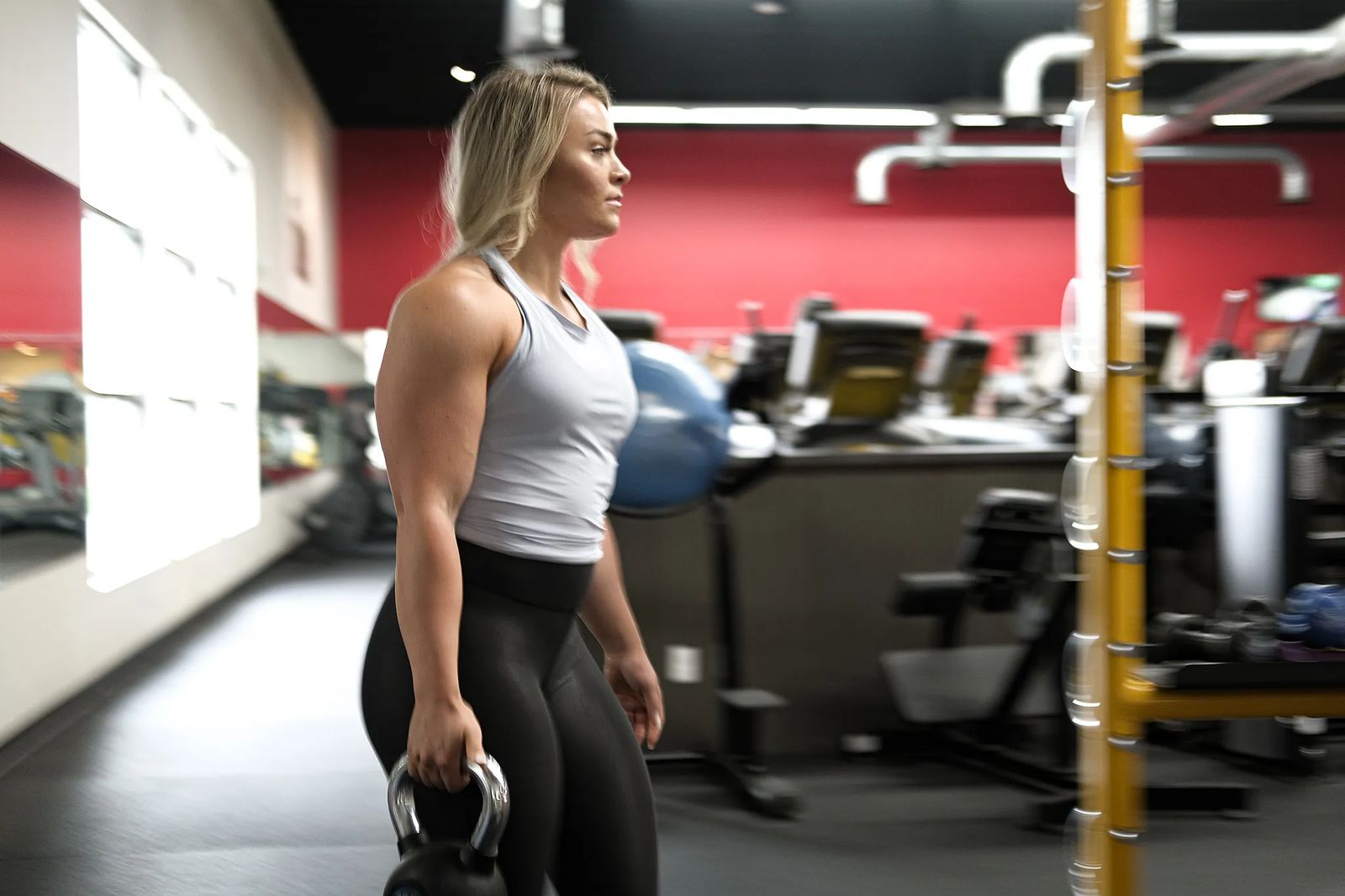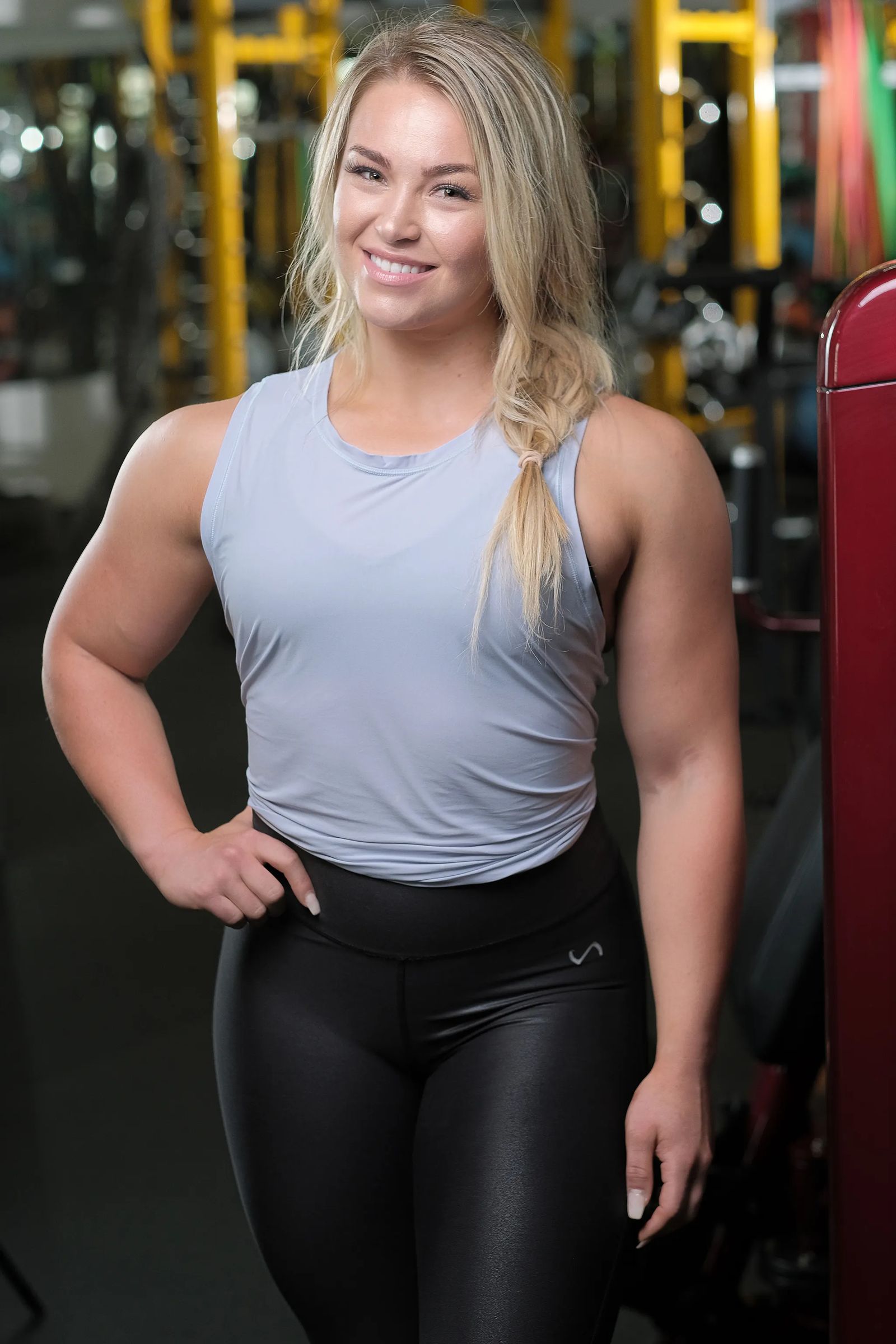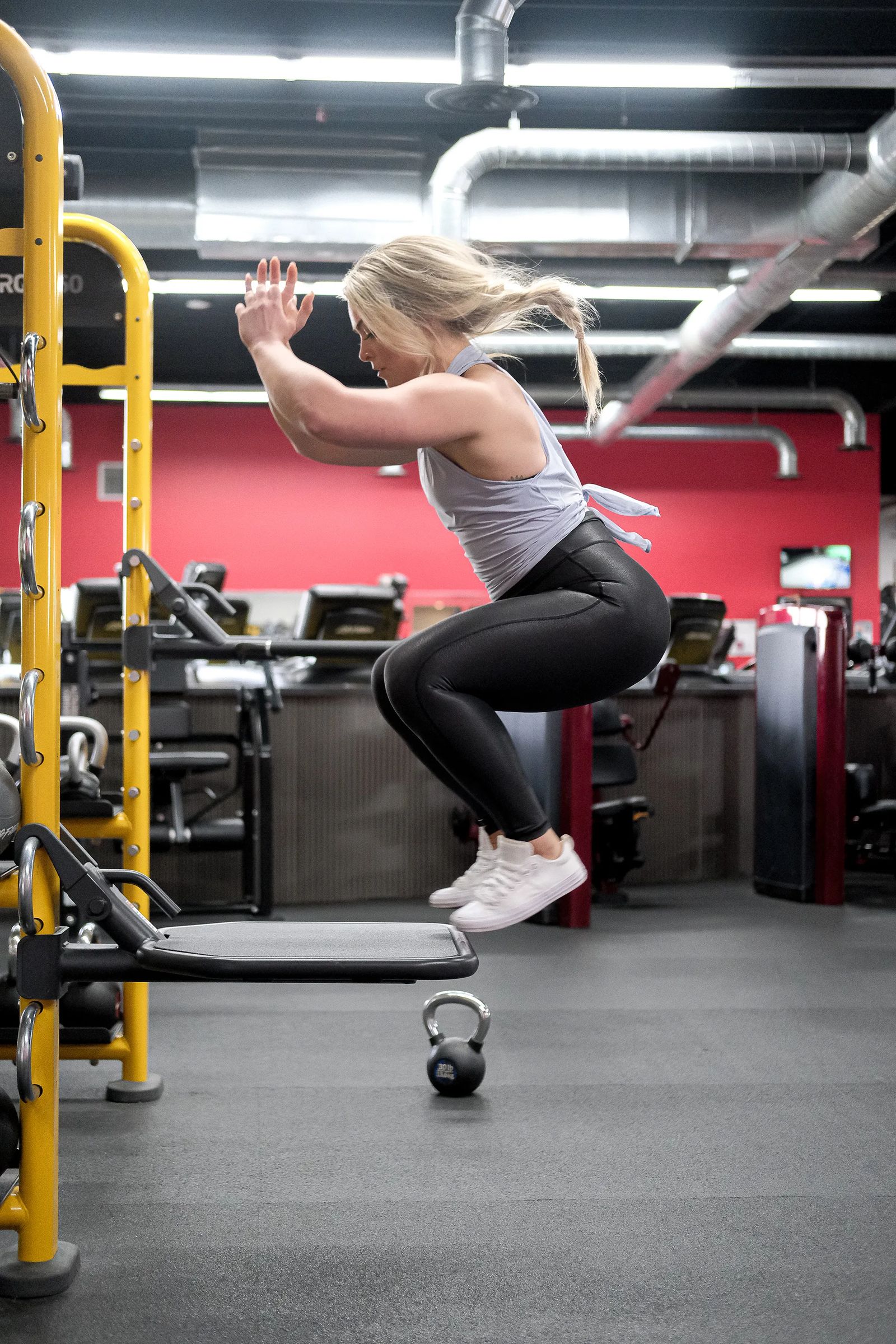
For as long as Maranda Ratcliff can remember, she’s been at war with her hormones. When she entered womanhood, the transition wasn’t easy. Her cycle was rough, cystic acne came into the picture and she fell victim to anxiety, depression and hormonal weight gain.
After several trips to various doctors, all were unified in their suggestion — begin taking birth control.
“I was on birth control from the time I was 11, until I was 23. So, about half my life,” Maranda says.
Now at 25, she shakes her head at the thought.
“Based on what I know now — 11-, 12- and 13-year-old girls — it takes time for their cycles to regulate on their own,” she says. “Doctors are putting these girls on birth control before their bodies can figure out what they are doing. When you are adding in extra hormones, what do you expect?”
While the pill appeared to regulate her cycle and helped keep hormonal acne at bay, anytime Maranda ramped up her exercise, a hormonal shift occurred, landing her back into the eye of a hormonal storm.

“When I started lifting, my acne would get worse. Every time I would eat better or less or diet per se, a lot of my hormonal symptoms would arise, which seems very counter-intuitive because you figure if you are eating healthier, you’d start to improve.”
The cycle continued well into her college years. It was problematic for this girl who loved to power lift.
“I wasn’t sleeping a lot because I was studying all night. I was in a high stress environment — all while powerlifting for, basically, a D-1 school. That was when I was in the Naval Academy, a dream that I had from the time I was in seventh grade.”
When her hormones flared, her confidence plummeted. She suffered from major bouts of anxiety and depression. It would be this way for another five years.
“I gained 25 pounds in college, even though I was exercising all the time and eating well,” Maranda says. “There’s no reason why I should have gained that weight.” She suspected her birth control pills and, out of frustration, quit them cold.
“The first three months, I felt phenomenal,” she says. “All of a sudden, my acne came back full force. I had cystic acne all over. Nothing I did could get rid of it. I lost my cycle completely and didn’t have it for six months.” She adds, “It was one of the darkest times in my life.”
During this dark period, Maranda decided to leave the Naval Academy after a physical showed she suffered from a spinal defect disqualifying her from her dream of becoming a pilot. After a few years at Montana Tech and one semester short of an engineering degree, she left school to start the women’s adventure retreat company called Rocky Mountain Women Outdoors.
Still, life wasn’t clicking.

“I was so conscious of the way I looked because of the acne and not being able to control my body, I cancelled five or six retreats because I couldn’t physically show up and feel confident and able to lead a group of women,” Maranda says. “That was last summer.”
The woman who loved to inspire others and make them think big about life was unable to follow her own advice.
“It was really hard,” she says. “I felt like if I didn’t figure this out, I wasn’t going to have a business. I wasn’t going to have any friends. If I can’t show my face, if I can’t show up for my life, what’s the point? I was determined to figure it out.”
She made an appointment with an endocrinologist.
“He ran literally every test imaginable,” Maranda says, “and all of my hormones came back normal. He said, ‘All of your numbers are within the normal to good range. Nothing is wrong.’”
Maranda started to power lift again and set her sights on fitness competitions. She hired a personal trainer and decided to go dairy, gluten and soy free for a couple of months, eating a paleo diet rich in lean meats, fish, fruits, vegetables, nuts and seeds. She started, with her trainer’s help, to put the pieces together.
“When you’re lifting heavy weights and training really hard, not giving your body enough time to rest, cortisol (the body’s main stress hormone) and inflammation can be a lot higher,” Maranda says. “My trainer looked at my lab work and noticed that when I’m in a dieting phase, my progesterone drops significantly.” Maranda was finally able to connect the dots. “Because my progesterone was dropping, I was losing my cycle and because my estrogen was increasing, I was experiencing acne and hair loss.”
Thinking about all she endured over more than 12 years, she says, “My personal trainer of all people was able to help me understand what was happening to my body.”
She started to focus on her digestive health, knowing that when you have digestive issues, metabolized estrogens can sit in your digestive tract and eventually be reabsorbed, aggravating hormonal imbalance. She takes a probiotic and digestive enzyme, drinks enough water and takes the supplement Ashwagandha for its anti-inflammatory, anti-stress and sleep-inducing properties. She’s also created a non-toxic home, using natural cleaning and personal care products to reduce her exposure to the chemicals and ingredients that can impact her hormonal health.
“I’m navigating this season now to figure out how I can get to a place where I am lean and comfortable and confident in my skin,” Maranda says.
Starting to hit her stride, Maranda says she is hitting some personal weightlifting bests. She can squat 315 pounds. Her deadlift is close to 400 pounds and despite her 5-foot-6-inch frame, she benches more than 200 pounds. She picked up a modeling contract with a local agency and hopes to pursue her dream of being a fitness model. And, this fall, she and her boyfriend, Travis, plan to film a hunting show allowing viewers to follow them along on their back country hunting expeditions.

Her mind is always engaged, looking for new opportunities. She laughs when she says, “It just never stops.”
She’s become a fitness influencer with close to 13,000 followers on social media. She also launched an online personal training and nutrition program that aims to create a game plan for women wanting to achieve better physical and hormonal health. She averages 30 one-on-one clients a month.
“I take a different approach with every woman I work with,” Maranda says. She talks about digestion, symptoms they might be experiencing or medications they might be taking.
In time, she dreams of hosting what she calls “Confidence Camp” — a retreat for high school female athletes designed to teach them how to lift and eat for performance and, as Maranda says, “help them step into their confidence.”
She’s hoping to use what she’s endured to lift up and inspire other women.
“It’s just been a journey,” she says. “I want to help other women because I know what it is like to be in such a dark place. I don’t want them to have to go through this alone.”
Hormonal Health & Digestion
Do you know about the connection?
Dr. Kaila Sellars is a naturopathic physician with the Yellowstone Naturopathic Clinic who specializes in hormonal health. She analyzes symptoms and knows by experience that there is a strong connection between a woman’s hormonal balance and her digestive health. It’s a topic that she wishes more women would explore.
“There’s a huge connection between gut health and clearing out hormones,” Sellars says.
While some doctors prescribe birth control to keep symptoms under control and regulate a menstrual cycle, Sellars says, “To truly regulate a cycle, you can’t really do that with birth control because it is shutting down ovulation and just impacting the uterus directly.”
When she counsels young women, she says, “The first couple of years can be irregular with is perfectly normal. I like to support digestive health and make sure they have enough healthy fatty acids.”
While checking hormone levels can be an important indicator of imbalance, Sellars says, “It’s really important to know where you are in your cycle when you do the test and interpret it based on that.” She adds, “It may appear normal because the range is so wide, it varies so much. But, going off how the patient feels gives you the best clinical decision making.”
Sellars says when it comes to imbalance, she will also look at adrenal function because that can directly impact a woman’s progesterone levels. She looks at cholesterol function and says, “low cholesterol will make less hormones all the way around.” And she makes sure that women are using the bathroom daily.
“The liver needs to clear things out and you have to support elimination,” Sellars says. If a woman doesn’t, she says, “You can actually reabsorb some of the estrogen metabolites from the gut which can lead to an overload of estrogen that way.”
That’s why Sellars makes sure her patients know about probiotics, making sure they switch up the type of probiotic regularly to promote what she calls a “diverse gut flora.” She encourages digestive bitters to help stimulate the body’s own digestive enzymes and better prep the stomach for digestion. And when it comes to fiber, she suggests that her patients get a healthy dose of it.
“Fiber is really huge and that is how you promote more diversity in the gut,” Sellars says, “making sure we eat enough fiber which I will tell you, most Americans don’t.”











